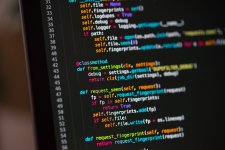Just like humans speak languages to communicate, computers use computer languages to process instructions. A computer language is a formal way to give commands to a machine, telling it what to do, how to do it, and when.
Everything you see on a website, use in a mobile app, or do on a computer — from opening a file to launching a rocket — starts with someone writing code in a computer language.
You might wonder: why not just one universal language? The answer is — different tasks need different tools. For example:
Each language has its own syntax (grammar), strengths, and areas where it performs best.
Let’s break them down simply:
Each category serves a specific purpose in the ecosystem of computing.
According to multiple developer surveys, these are widely used in 2025:
No single language is “best” — it all depends on what you want to build.
If you’re a beginner, Python is often the best place to start:
For web developers:
For those interested in databases:
For engineering and embedded systems:
Knowing how to code opens up doors in almost every field — from software development and game design to automation, cybersecurity, and data science. Even non-tech professionals can benefit from understanding basic coding logic.
And with platforms like GitHub, Codecademy, W3Schools, and YouTube, learning has never been more accessible.
One thing is clear — while the syntax may change, the need to “speak machine” will always be valuable.
Computer languages are the building blocks of the digital age. Whether you're programming a robot, building a website, or analyzing big data, you're using a language that helps you talk to the machine.
In today’s tech-driven world, understanding even one computer language is not just a career asset — it’s a modern-day skill that empowers creativity and innovation.
Which computer language are you currently learning — or planning to learn?
Do you think everyone, regardless of profession, should know at least basic coding?
Let’s hear your thoughts and experiences in the comments!
Everything you see on a website, use in a mobile app, or do on a computer — from opening a file to launching a rocket — starts with someone writing code in a computer language.
Why Are There So Many Computer Languages?
You might wonder: why not just one universal language? The answer is — different tasks need different tools. For example:
- C and C++ are used for high-performance system applications
- Python is popular for simplicity and AI development
- Java is preferred in enterprise applications and Android apps
- JavaScript powers websites
- SQL is used to talk to databases
Each language has its own syntax (grammar), strengths, and areas where it performs best.
Types of Computer Languages
Let’s break them down simply:
- Low-Level Languages
- Machine Language: Binary code (0s and 1s) understood directly by hardware
- Assembly Language: A slightly readable version of machine code
- High-Level Languages
- Closer to human languages, easier to learn
- Examples: C, Java, Python, Ruby, PHP
- Scripting Languages
- Used to automate tasks or build websites
- Examples: JavaScript, Bash, Perl
- Query Languages
- Used to request or manipulate data from databases
- Example: SQL
Each category serves a specific purpose in the ecosystem of computing.
The Most Popular Programming Languages Today
According to multiple developer surveys, these are widely used in 2025:
- Python — Great for beginners, used in AI, data science, and web development
- JavaScript — Powers 95% of all websites
- Java — Still a favorite in big companies and mobile development
- C# — Used with Microsoft technologies and game development
- Go (Golang) — Rising in popularity for its speed and efficiency
- Rust — Known for safety and performance in system-level tasks
No single language is “best” — it all depends on what you want to build.
Learning a Computer Language: Where to Start?
If you’re a beginner, Python is often the best place to start:
- Clean, readable syntax
- Tons of learning resources
- Widely used in AI, automation, and web development
For web developers:
- HTML, CSS, and JavaScript are essentials.
For those interested in databases:
- Learn SQL — it’s required for almost every data job.
For engineering and embedded systems:
- C/C++ is essential.
Why Learning Code Is Like Learning a Superpower
Knowing how to code opens up doors in almost every field — from software development and game design to automation, cybersecurity, and data science. Even non-tech professionals can benefit from understanding basic coding logic.
And with platforms like GitHub, Codecademy, W3Schools, and YouTube, learning has never been more accessible.
The Future of Computer Languages
- AI-assisted coding: Tools like ChatGPT and GitHub Copilot are helping coders write faster.
- Language unification: Multi-language frameworks like Node.js and Flutter are blurring boundaries.
- Voice-based coding: Experimental tools are being built where you speak code instead of typing it.
One thing is clear — while the syntax may change, the need to “speak machine” will always be valuable.
Conclusion
Computer languages are the building blocks of the digital age. Whether you're programming a robot, building a website, or analyzing big data, you're using a language that helps you talk to the machine.
In today’s tech-driven world, understanding even one computer language is not just a career asset — it’s a modern-day skill that empowers creativity and innovation.
Invitation to Discussion:
Which computer language are you currently learning — or planning to learn?
Do you think everyone, regardless of profession, should know at least basic coding?
Let’s hear your thoughts and experiences in the comments!

